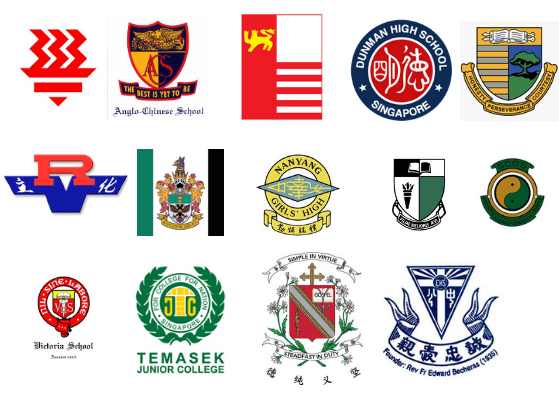Direct School Admission (DSA) students in Integrated Programme schools:
Parents of children who have been admitted into IP schools have expressed their concern to me on their anxieties, mainly whether their child will be able to cope with the rigorous educational standards of the top schools even though many of them do not meet the cutoff scores of their individual schools. I can assure you that with enough preparation, your child will be ready to meet the expectations of their IP schools and do better than their peers. I will cover this issue in the points below.
- Your child’s PSLE grade is low because of their success in the DSA interview.
Once a 12yo child is informed that he/she has been admitted into a top school before taking the PSLE, their typical response will be a sigh of relief and a more relaxed attitude towards one of the most stressful exams in Singapore. Most of my DSA students, and including my friends who have been successful in DSA applications into IP schools, have told me that the days leading up to PSLE have been stress-free, and they are able to focus more on their CCAs instead of just pure academics. This is shown in their lower PSLE scores as compared to their peers in their respective IP schools, who have been spending a lot of time hitting the ten year series as their spots in the IP schools are not secured. I assure you that if your child studied more during those days, he/she would see a significant jump in their PSLE scores as well. They are by no means lacking in terms of intelligence compared to their peers.
- There are quite a few skills or chapters covered in the PSLE that have insignificant impact on secondary school life
In the chapters of Science, only human/plant systems, forces, energy, man and his environment are tested in Secondary school. The bulk of what they learn in Primary 6, which is animal based such as environmental impact, web of life, adaptation, is completely untested at the Secondary level. For Math, the skills used in the last 20 marks of the exam, which essentially act as a gatekeeper to A* grade, are used to tackle open ended problem sums with abstract concepts. These skills may not be of great value in Secondary level Maths which focuses more on laws, procedure and presentation. In English, compositions test students on creative narrative writing, whereas Secondary level English tests them on argumentative essays, which place more importance on current affairs, and debating of key points rather than narrative and creative writing. In Secondary school, discipline and conscientiousness is more important, as compared to primary school which values open ended problem solving through problem sums and seemingly out of textbook structured question answers.
- The schools provide extra assistance to their DSA students
It should come as no surprise that the DSA students are valued members of the school as they are their representatives in CCAs. If students are taken out of class due to CCA commitments, there will be avenues for the teachers to cover those lost lessons with them again. CCAs are also expected to stand down during exam periods, especially during finals where the weightage of the exams are the highest.
That being said, DSA students should never rest on their laurels. IP is a competitive system that has sieved out most of the academically gifted children in Singapore. To do well in such an environment requires intense efforts from both parents as well as students to ensure that they do not stray from the path of academic excellence.
Mr Y.S Pang, IP Math and Science tutor at Singapore Learner
OUR IP TUTORS:
Mr Pang: Mr Pang graduated with a B.Eng(Honors) from NUS, and has been coaching students in O-level/IP and A-level Mathematics and Science for more than 5 years. An alumnus of RVHS(IP) and an experienced tutor in IP/A-level education, Mr Pang is a results oriented tutor whose students do very well in exams through efficient learning methods and exam preparation skills. Mr Pang employs a variety of teaching methods to cater to every type of learner, as well as teaching them the skill of self diagnostics, giving them the ability to constantly spot and rectify their own errors. He takes pride in inspiring his students to become confident learners and critical thinkers.
Mr Ilyasa: An NIE-trained Teacher, Mr Ilyasa has been coaching students in O-Level & IP Chemistry, Physics and Math for more than 12 years. An alumnus of Raffles Institution, Mr Ilyasa holds a a Bachelor of Science degree from the NUS as well as a Master of Education (Curriculum & Teaching) degree from the National Institute of Education. Mr Ilyasa’s thinking and metacognitive approaches to problem solving has helped many students of varying abilities to excel in Math and the Sciences. He has coached students from many different schools and streams, including IP, SAP, and IB.
For INDIVIDUAL (1-1) TUITION, you may contact Mr Ilyasa at 97860411.
